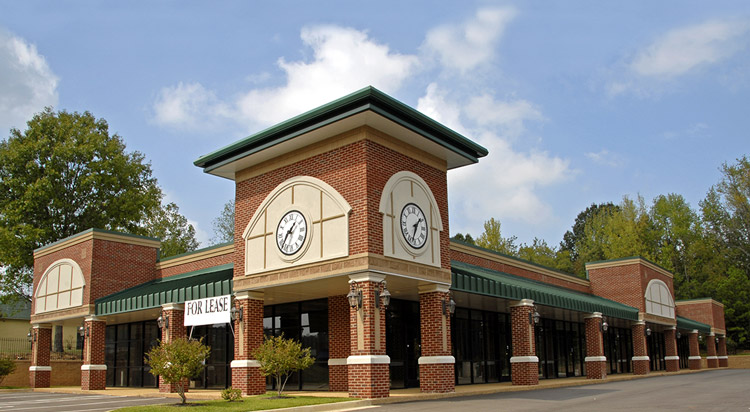

Property Tax Appeal Considerations in Commercial Leases
By Nicole L. Voigt, Esq., Attorney at Law
When Can Commercial Tenants Appeal?
N.J.S.A. 54:3-21 authorizes any aggrieved tax payer to file an appeal, subject to other jurisdictional requirements. The Superior Court has confirmed that, if tenant’s lease term covers an entire tax year, and the tenant is required to pay the real estate taxes applicable to the premises, the tenant is generally permitted to file an appeal of the tax assessments. See Township of Ewing v. Mercer Paper Tube Corp., 8 N.J. Tax 84, 91 (Tax 1985). Proper notice to the landlord is required.
Such standing to appeal often exists for commercial tenants under triple net leases. Questions arise, however, when multiple tenants rent within the same building or mall, such as with shopping centers. When considering the appropriateness of a tenant initiated tax assessment appeal, the Courts weigh the relative circumstances and economic interests of the tenant. The Court considers several factors:
- The provisions of the lease itself, its duration, the burden of the tax surcharge on the tenant, and the possibility that the issue can soon be resolved by renegotiation;
- The tenant’s relationship to the property, whether it is the lead tenant in a shopping center or only one slightly affected by the assessment;
- Whether the tenant will adequately represent the interests of the landlord and other tenants, or whether the tenant has interests adverse to either group;
- The tenant’s ability to mount and prosecute an effective appeal; and
- The landlord’s overall relationship with the taxing authority, and whether this is but one of multiple properties as to which the landlord may wish to exercise the right to appeal.
See Village Supermarkets, Inc. v. Township of West Orange, 106 N.J. 634-35 (1987). By way of example, a small ice cream stand in a suburban mall is not likely to be properly positioned to sue on behalf of national tenants. Id. at 633.
Tax Considerations in the Commercial Lease
Although the right to appeal is authorized by New Jersey law, commercial leases can restrict a tenant’s rights to file an appeal. Conversely, the lease can confirm the tenant’s authority to file on behalf of the landlord, by giving to the tenant express consent and the right to control the appeal.
When a tenant preserves the right to file an appeal, the lease may also require that the landlord timely complete Chapter 91 demands. Pursuant to N.J.S.A. 54:4-34 (also known as Chapter 91 demand), a property owner must provide to municipal assessors income and expense data relevant to assessing property value, upon receipt of a demand for same. Failure to timely respond bars the filing of a tax assessment appeal, unless good cause is shown: a tough standard to meet. Therefore, a landlord’s failure to file such income and expenses data may undermine tenant’s right to relief from over assessment. Confirming this obligation is especially important for out-of-state real estate investments, which may not be adequately aware of the legal effect of Chapter 91.
Additionally, where a landlord enjoys certain property tax exemptions (N.J.S.A. 54:4-3.6), such as certain not-for-profit uses, letting all or part of the premises to a non-exempt organization must be carefully examined, to determine whether the lease will result in an added assessment. Such added assessment would be prorated for the year and apply in the first month after the change in use. N.J.S.A. 54:4-63.28. However, upon terminating the lease, the added assessment will remain until such time as the exemption may be reclaimed. The use on October 1 of the pre-tax year will determine whether the exemption applies for the following tax year. Therefore, even if a tenant is required to pay for such added assessment during the lease term, the obligation to pay the added assessment after lease expiration, and before the exemption is reinstated, must be clarified.
Not a Simple Matter
Commercial lease strategies as they relate to real estate taxes can quickly become complex. The above is only a partial listing of considerations that might apply. It is important that commercial leases be reviewed with the assistance of an experienced real estate attorney, to avoid unintended consequences and penalties arising under tax assessment laws.
THE INFORMATION CONTAINED HEREIN IS GENERAL INFORMATION, IS NOT LEGAL ADVICE, AND DOES NOT CREATE AN ATTORNEY-CLIENT RELATIONSHIP. YOUR SPECIFIC FACTS AND CIRCUMSTANCES MUST BE CAREFULLY REVIEWED WITH A RETAINED ATTORNEY PRIOR TO REACHING LEGAL CONCLUSIONS.
You may contact Nicole at (908)801-5434 or info@nlvlegal.com. For more information, visit www.voigtlawoffice.com.




